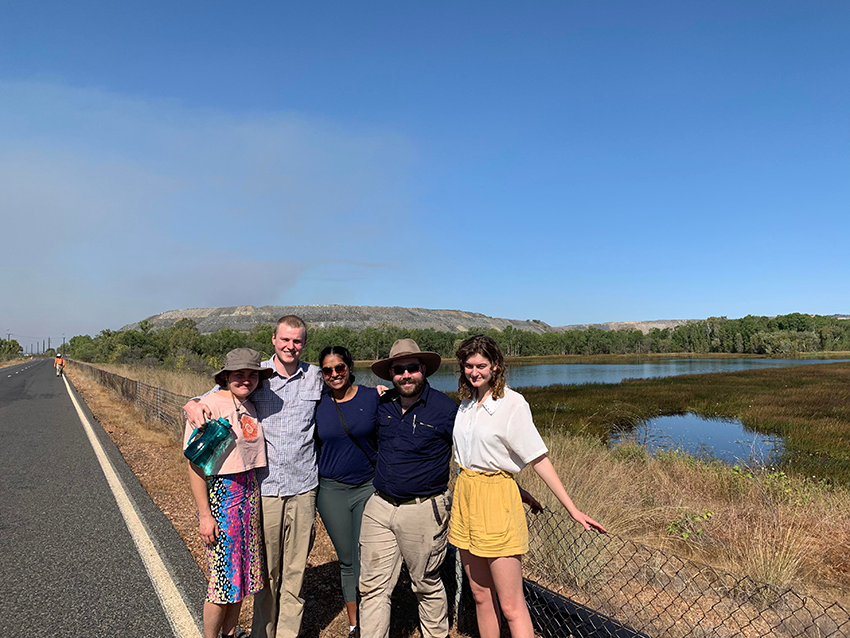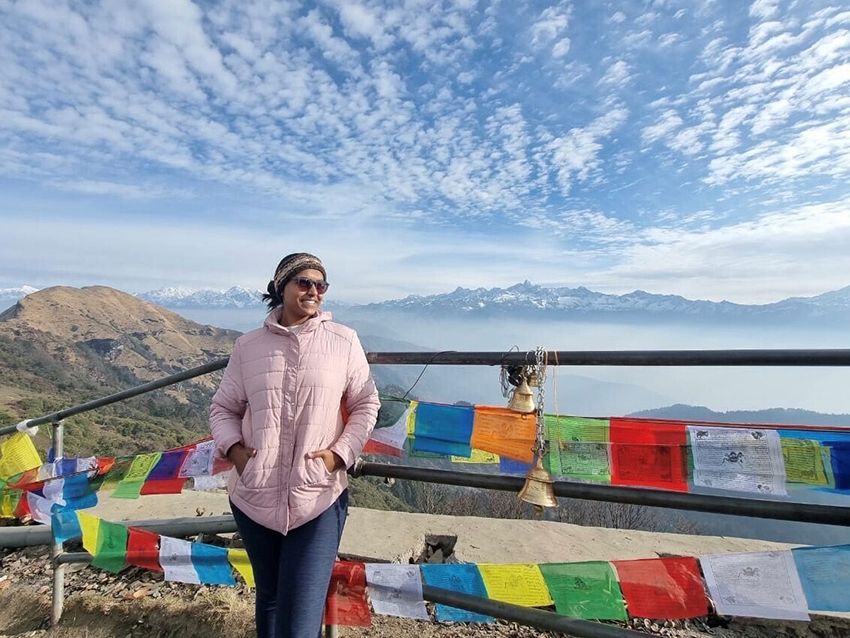This year the New Colombo Plan is expanding its First Nations Cultures and Environment Study Tour in the Northern Territory, delivered in partnership with Charles Darwin University.
Originally offered as a pilot in 2022, the study tour provides NCP scholars with a better understanding of First Nations’ practices of learning, knowledge sharing, management of natural and cultural resources, and diplomacy and how to apply and share this knowledge while on their NCP scholarship program.
The Department of Foreign Affairs and Trade will this year support up to 30 scholars to participate in the intensive six-day tour in the Northern Territory before they travel overseas to spend up to 18 months living, studying and interning in the Indo-Pacific.
2022 NCP Nepal Fellow Harine Somasundaram was one of the scholars to participate in the pilot study tour last year before she travelled to Nepal, where she has been based since.
The Bachelor of Laws and Arts double degree student from Macquarie University says the study tour was an immersive and rich learning experience.
“It was an opportunity for me to reflect on the significance of integrating First Nations knowledges in decision-making and environment management practices,” Harine says.
Now studying at the Kathmandu University School of Law, Harine spent the first part of her NCP scholarship interning with the International Centre for Integrated Mountain Development and the Small Earth Nepal, where she learned about the challenges and opportunities environmental management poses in Nepal.
Harine has applied the knowledge gained in the Northern Territory during her time overseas, including an opportunity where she was invited to deliver a presentation to fourth year students at the University of Moratuwa in Sri Lanka.
She says the First Nations Study Tour made her feel more confident to contribute to a unified Australian voice.
“I was able to raise cultural awareness of Australia and to not just present a one-sided Australian story, but rather an acknowledgement of our true history,” Harine says.
“I think we all have a responsibility to be able to not just offer a ‘Westernised’ perspective of our country but instead incorporate and acknowledge First Nations identities when we when we say we’re Australians.”
Harine, who majors in international relations and environmental management, says decolonisation was a focus during the First Nations Study Tour and this lens has been useful in understanding environmental management in the Nepal context.
“The tour shifted my mindset and made me more open-minded – I’ve certainly taken aspects of that philosophical thinking to my experience in Nepal,” she says.
“In the Northern Territory, we saw firsthand the deep connections that First Nations people have with land and with country and were taught about how we can incorporate that rich historical knowledge into current management practices, and how important that is.
“In Nepal, Indigenous practices of environmental management often get overshadowed by Western people coming in and saying: this is the best way to monitor your water or preserve your country.
“Sometimes that overpowers what has traditionally been done and the identity and connections that Nepali people have had over a long period of time.
“I now have a far better understanding of the importance of a collaborative approach to environmental management that acknowledges the diversity of Indigenous peoples in Nepal.
“We need to acknowledge how each of those local communities and their voices can be heard in policymaking and environmental laws.”
Fellow NCP Scholar and Media and International Relations student Cooper William shares a similar experience. He says the program helped reshape his thinking prior to travelling overseas.
“As I uncovered, it is comfortable and logical to try to simplify other cultures into neat boxes with which we can explain and understand the world,” Cooper says.
“To break down barriers and practice better diplomacy, it is essential to challenge the Western-colonial lens with which I see the world.
“Being out on country and meeting with the Bininj mob was an excellent way to do this.”
The NCP First Nations Cultures and Environmental Study Tours will take place in June this year.








